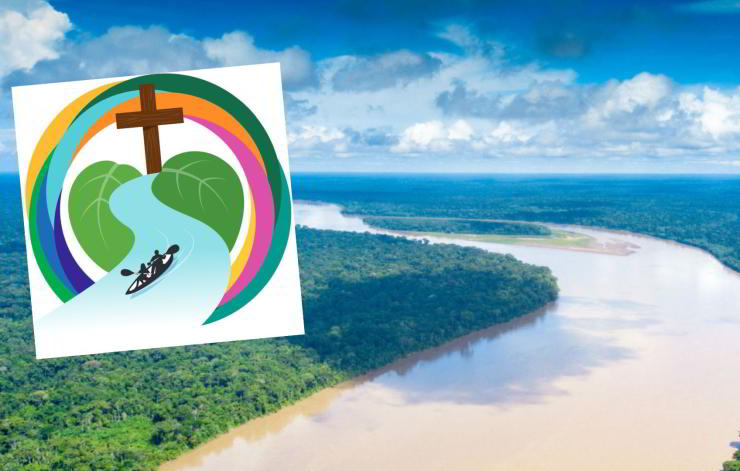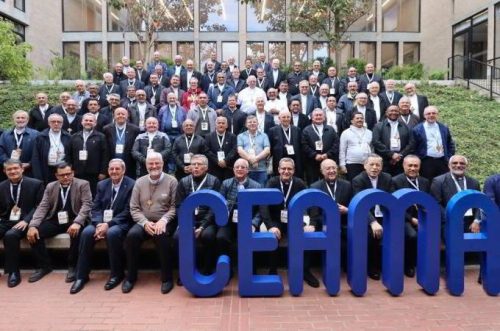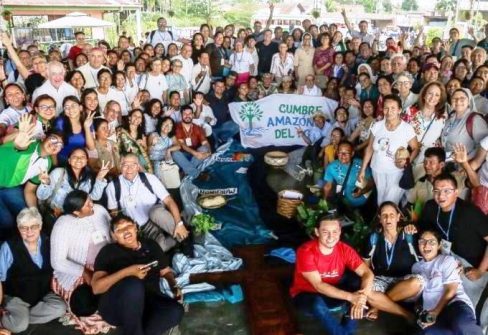The perspective of the Churches.

Beyond technical negotiations, the conference in Belém will also be a space for the affirmation of ethical, spiritual, and civilizational values.
In the lead-up to COP30, the Churches of the Global South, Cáritas Brasileira, the ecumenical movement, and other faith-based organizations have insisted on placing climate justice, human rights, and care for Creation at the centre. Their proposals reflect a critical reading of the international climate process, marked by persistent “false solutions” — such as the commodification of carbon markets and the financialization of nature — and by the absence of robust commitments to the most vulnerable peoples.
Along this path, Cáritas Brasileira released its COP30 Position Paper – “For a just, inclusive, popular, and democratic transition” – the result of broad consultation across its national network. Structured around seven strategic pillars, the document diagnoses the climate emergency and puts forward concrete guidelines for the Brazilian government, rooted in territorial experience. Among the central themes are: fiscal justice in climate finance, recognition of non-material loss and damage, an energy transition that respects territories, agroecology as a structuring policy, and the right to free, prior, and informed consultation of traditional communities affected by large projects.

The Ecclesial Conference of the Amazon (CEAMA). More than 90 bishops, priests, religious and lay people from 76 ecclesiastical jurisdictions and religious communities that make up the Pan-Amazon region. A call to be a Church with an Amazonian face. (Photo Celam)
The Churches of the Global South, in turn, presented in July 2025 their joint declaration “A Call for Climate Justice and Our Common Home”. It explicitly condemns extractivist and technocratic models that continue to exploit natural resources and marginalise vulnerable communities, while rejecting “market-based solutions” such as carbon offsets or the financialization of nature. In contrast, it calls for a transition centred on human dignity, ecosystem restoration, the protection of Indigenous territories, and the promotion of local alternatives.
Hope, in this vision, emerges through the denunciation of the “throwaway culture” and through the ecological conversion of peoples, resonating with particular force in the Amazon.

The voices of the people must be heard. Photo Repam
In parallel, the ecumenical movement drafted a Call to Action, delivered directly to Minister Marina Silva during a meeting in March 2025. The document calls for greater protagonism of faith communities in the climate agenda, emphasises the centrality of Indigenous and quilombola peoples, summons youth engagement, and insists on urgent mechanisms that recognise both the material and immaterial dimensions of climate devastation.
Belém may thus become a symbolic milestone for the presence of Churches and faith movements within climate negotiations. Vigils, interreligious celebrations, and the tapiri ecumenical space are meant to affirm that the struggle against the climate emergency is also a spiritual and ethical calling. If the voices of the peoples are heard and the channels between grassroots and negotiating tables remain open, COP30 could inaugurate a more plural institutional framework, rooted in territories and connected to the diverse faiths and spiritualities of Churches and peoples.
Conclusion
COP30 in Belém brings together the contradictions that permeate the entire climate process: technical advances without secured resources, political promises without clear timelines, and commitments postponed in the face of an accelerating emergency. Yet the choice of the Amazon as the global stage gives the meeting a unique symbolic weight: more than a negotiation forum, it becomes a space to dispute the very meaning of ecological transition.

Belém can inaugurate a new grammar of hope, in which peoples and their practices take centre stage in building the ecological transition. 123rf
As Pope Francis has emphasised, the climate emergency cannot be reduced to technical debates or market calculations; it demands a profound conversion — ecological, social, and spiritual — capable of transforming political priorities, lifestyles, and power relations. In this horizon, COP30 may not resolve the structural deadlocks of the climate regime, but it can strengthen a broader movement, rooted in peoples and communities, pointing toward a conversion that transcends the individual and embraces the communal.
Belém may not close the cycle of deferred promises that has marked the last three decades of climate negotiations. But it can inaugurate a new grammar of hope, in which peoples and their practices take centre stage in building the ecological transition. Its legacy, therefore, may lie in concrete pathways for territories, through stronger transnational alliances, empowered local communities, and the ethical and spiritual mobilisation that radiates from the Amazon to the world. (Open Photo. Amazon Forest. Repam and the logo of CEAMA)
Luca D’Avila



